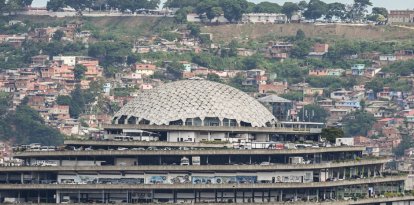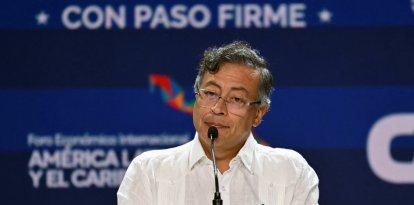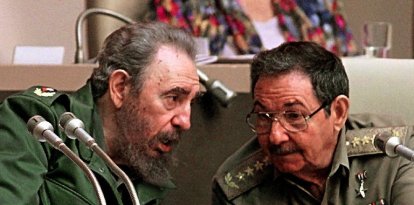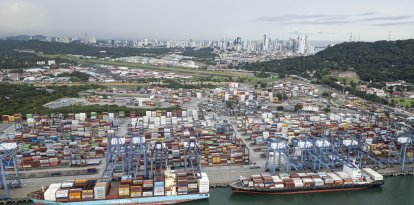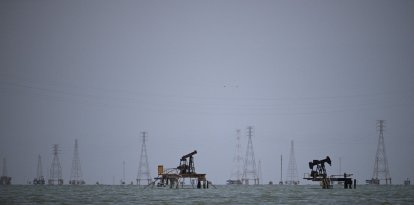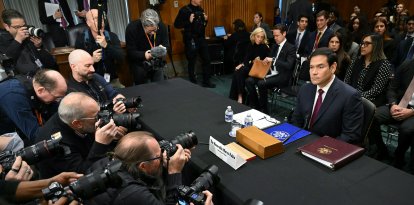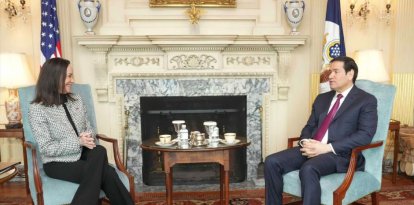Persecution in Venezuela: the Maduro regime mocks the US and orders the arrest of opposition leaders and figures close to leader María Corina Machado
The Chavista Prosecutor's Office announced that Henry Alviarez, Claudia Macero and Pedro Urruchurtu, all close to Machado, will be charged with the crimes of "treason against the homeland" and "conspiracy," among others.
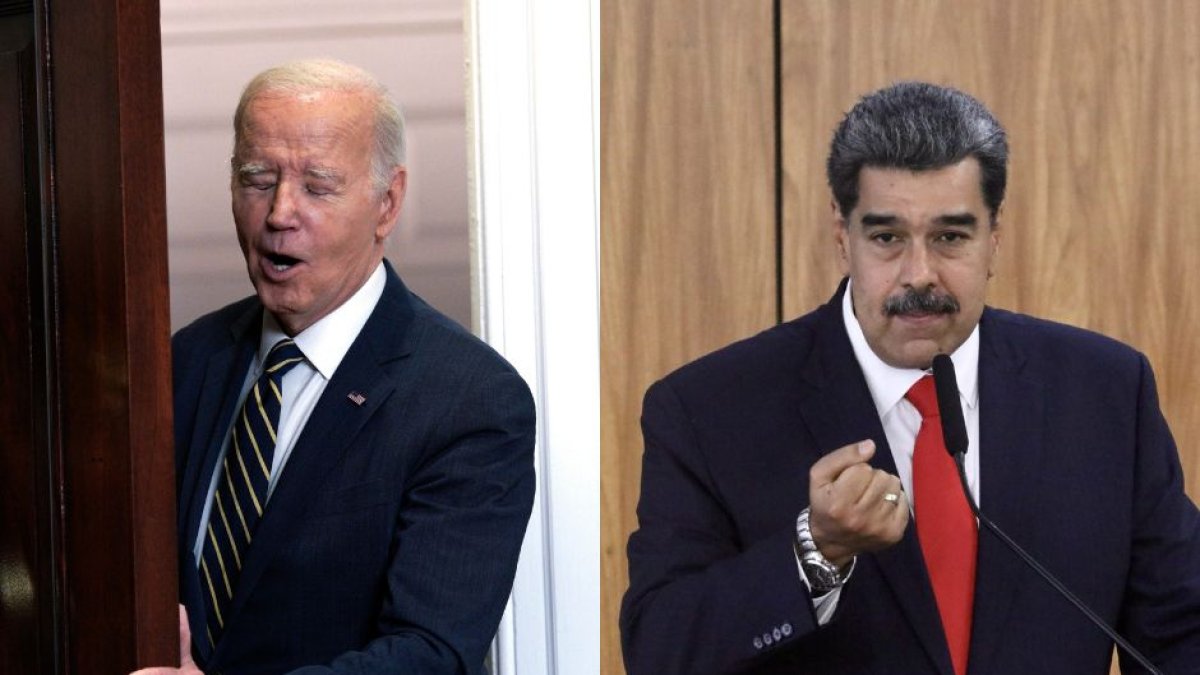
Imágenes: Cordon Press
In the middle of a strong diplomatic approach of the Biden Administration to the Maduro dictatorship After the negotiations in Barbados, the Chavista regime, through its attorney general, Tarek William Saab, ordered the arrest of 13 political leaders, including several figures close to the leader María Corina Machado, who recently established himself as the main face of the Venezuelan opposition after sweeping an unprecedented process of primaries.
William Saab, disrespecting due process, accused several Venezuelan leaders of “betraying” Venezuela after allegedly allying with the American oil company ExxonMobil to sabotage the referendum on Essequibo organized by the Chavista regime, which took place last weekend in Venezuela. .
The regime's prosecutor targeted the following opposition leaders who remain in Venezuela: Henry Alviarez, Claudia Macero and Pedro Urruchurtu, all from the Vente Venezuela (VV) party, Machado's political group; and the president of Súmate, Roberto Abdul, who was key in the opposition primary process that consolidated Machado as the most popular Venezuelan politician today.
The Chavista regime also accused the following leaders in exile: Yon Goicoechea, Juan Guaidó, Julio Borges, David Smolansky, Carlos Vecchio, Lester Toledo and Leopoldo López ; all long-standing leaders.
Likewise, Saab also ordered the arrest of former Chavista ministers Andrés Izarra and Rafael Ramírez , who allegedly participated in the plot against the Venezuelan State.
Finally, the regime's prosecutor announced the arrest of a US citizen, Savoi Wright, who allegedly participated in the oil company's "conspiracy campaign" against the referendum.
Saab said that the American citizen used a cryptocurrency and “large sums of cash to evade financial controls and mask the origin and destination of the funds used to conspire” against the referendum itself.
The press had already revealed Wright's arrest weeks ago, in mid-November, but at that time the alleged reasons were not known.
Who are the political leaders close to Machado who were accused by the regime?
Urruchurtu is considered one of the most important figures in Vente Venezuela and Machado's right-hand man . This is the coordinator of International Affairs of the political group.
Macero is the coordinator of National Communications for Machado's party , her arrest was surprising, because far from being a public figure, her function within the political group is mostly focused on communication on social networks or the organization of events, sources within the party said. game. Macero has also become known for her radio programs and her musical career on social networks.
Meanwhile, Alviarez is the coordinator of the National Organization of Vente Venezuela , he was next to Machado at a press conference at the time Saab announced his arrest.
According to the regime's prosecutor, all of them will be accused of "treason against the country", "conspiracy with a foreign power", "money laundering and association to commit a crime".
María Corina Machado, regarding the arrest warrants against her team and close figures, said that the regime was clearly violating the agreements reached in Barbados, negotiations between the opposition and regime officials to hold elections in 2024 that were supported by the Biden Administration and the international community.
“Today, Wednesday, December 6, 2023, the regime, through the Attorney General's Office of the Republic, announced, without any type of legal basis and in flagrant violation of the due process, the existence of arrest warrants against Claudia Macero, coordinator of National Communications; Pedro Urruchurtu, coordinator of International Affairs; and Henry Alviarez, coordinator of the National Organization, all members of Vente Venezuela, as well as Roberto Abdul, president of Súmate and other political leaders,” reads the Vente Venezuela statement.
“This action constitutes a new chapter in the systematic pattern of political persecution that attacks the civil rights of those who oppose tyranny. Which not only represents a failure to comply with the agreements signed in Barbados, but also increases the list of politically persecuted people . From Vente Venezuela we firmly support our colleagues from the National Executive Directorate, and we alert the members of the various international bodies to be vigilant to what may happen in the coming hours in the face of these events that seek to criminalize political dissidence. “Today, more than ever, our fight continues until the end,” they added.
Maduro mocks the Biden Administration
The attack against the political dissidence of the Maduro regime comes after the United States, following the Barbados agreements, made sanctions against the dictatorship more flexible in terms of oil, gas and gold , key sectors for the sustainability of the Chavista regime itself.
However, after the partial lifting of sanctions, the Maduro regime systematically disrespected the Barbados agreements and Biden Administration officials have threatened in international media to reinstate sanctions if Chavismo does not comply with the agreements . Such threats are not working, according to critics.
Senator Marco Rubio (R-FL) is one of the important voices that rose asking the Biden Administration to reestablish sanctions immediately , ensuring that Chavismo "cannot be trusted."
Approximately a month ago, at the beginning of November, the White House advisor for Latin America, Juan González , said that Maduro had until November 30 to comply with the pacts in Barbados requesting the authorization of all politicians for the 2024 elections. .
“The Secretary of State (Antony Blinken) was very clear in saying that the Maduro regime has to meet a series of conditions to continue seeing relief from sanctions,” said González in an interview with the NTN24 channel, mentioning that among the agreements were the release of political prisoners.
However, after November 30, the US Embassy in Venezuela only released a tepid statement announcing that they are “reviewing” sanctions relief and that they “welcomed the measures taken to implement the agreement between the Unitary Platform and the representatives of Nicolás Maduro.”
Although the regime released five political prisoners after the partial lifting of sanctions, critics assure that, since then, the Chavista dictatorship has been activating the repressive system known as the “revolving door,” where some prisoners are released from the regime's dungeons to enter. other new politically persecuted.
Daniel Chang, a Venezuelan political analyst residing in the US, explained to Voz Media that, although he expected a less authoritarian stance from Chavismo after the lifting of sanctions, the regime's actions are not surprising, despite Washington's rapprochement with Caracas.
“It is not surprising that the government of Nicolás Maduro acts like the dictatorship that it is, perhaps surprising that they did it so quickly,” Chang said.
“I did hope, like many people, that the Chavista government would be a little less authoritarian, at least for a few months so as not to hinder the Barbados Agreement and to extract as many resources as possible by lifting sanctions,” Chang continued. “However, these actions today tell us two things. The first, that after the primaries, the success of the primaries and the failure of the consultative referendum with Essequibo, Chavismo is very clear that there is no way it can win in 2024. And that has perhaps given more strength to the toughest of Chavismo to immediately sabotage the Barbados Agreements and position themselves to establish a scenario like Nicaragua in 2024. ”
The analyst explained that the regime's actions put Washington in check, which must now make a decision on how to confront Chavismo's persecution of opponents after lifting economic sanctions.
“These actions put the Biden government in a dilemma, or the Biden government accepts what it established in the negotiations and reimposes sanctions if the government of Nicolás Maduro does not make democratic concessions, which would be a total failure of your strategy, either They completely ignore his established position and embolden Maduro to make riskier decisions."Not only in the case of Venezuelan internal politics, but also in the issue of Essequibo," Chang stated, recalling the territory in dispute between Guyana and Venezuela.
At the time of publishing this article, the State Department or the US Embassy in Venezuela did not comment on the announcements of the arrest of Chavismo.
Voz Media contacted White House advisor Juan González for comment, but there was no response.













